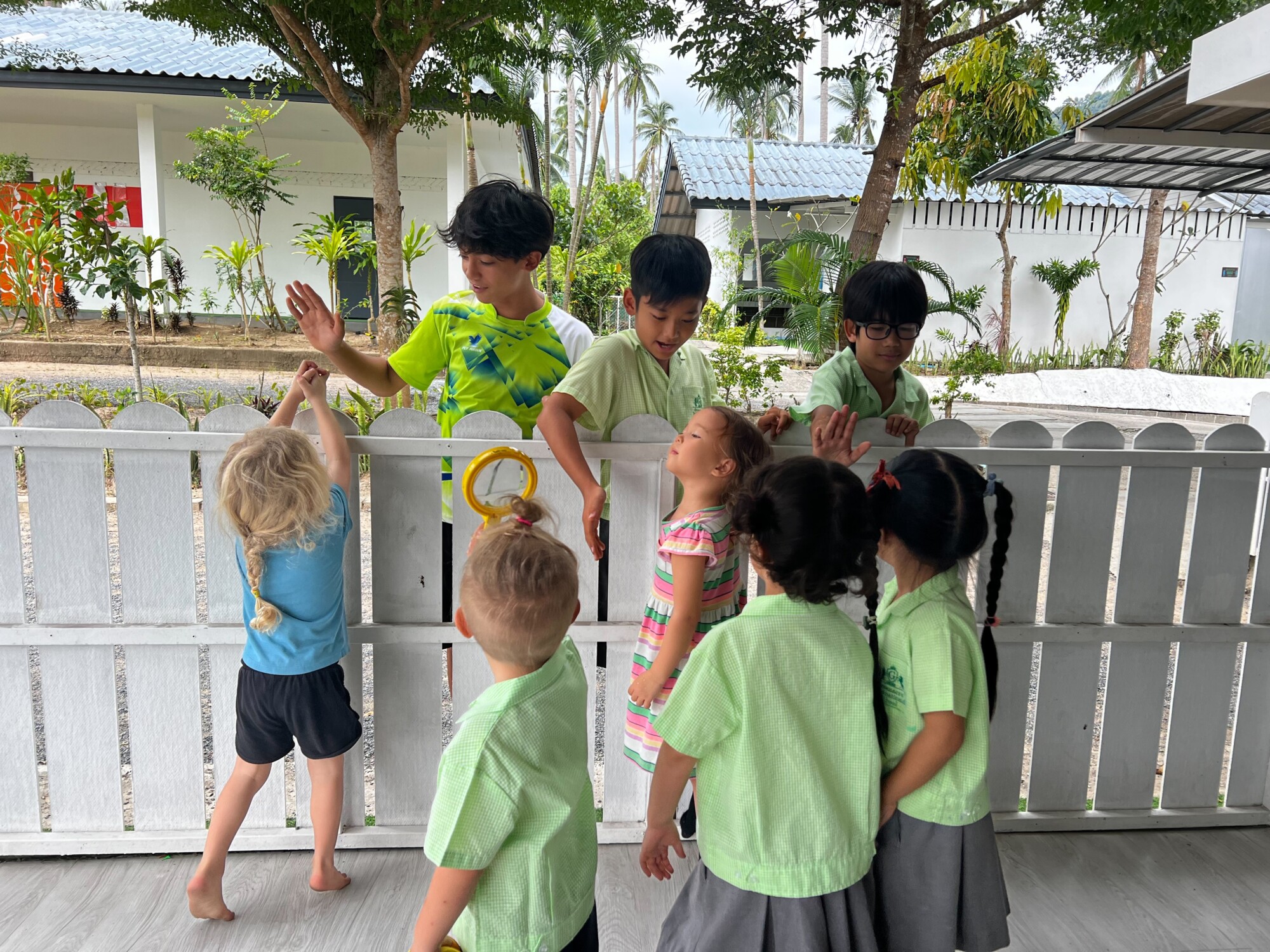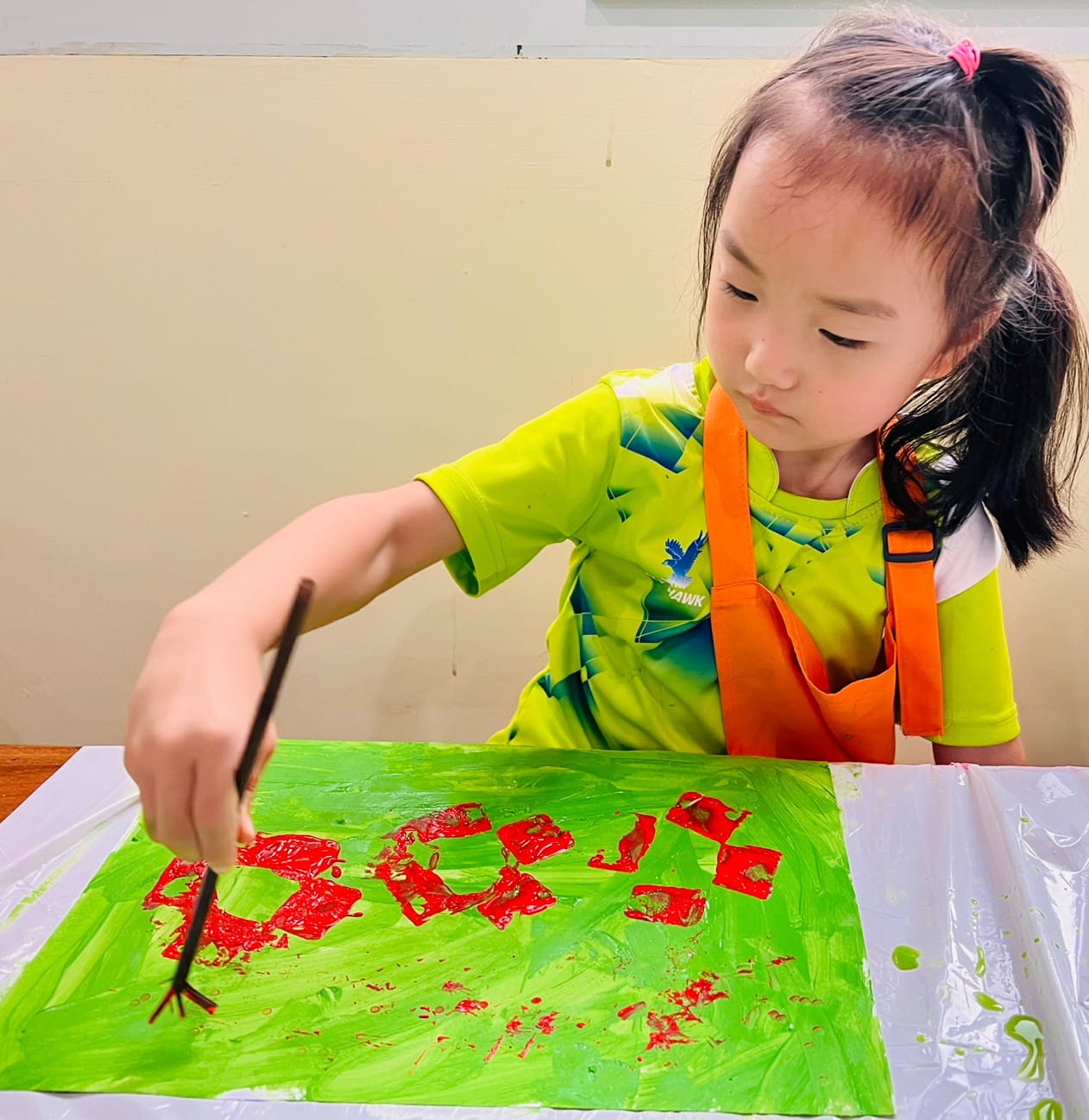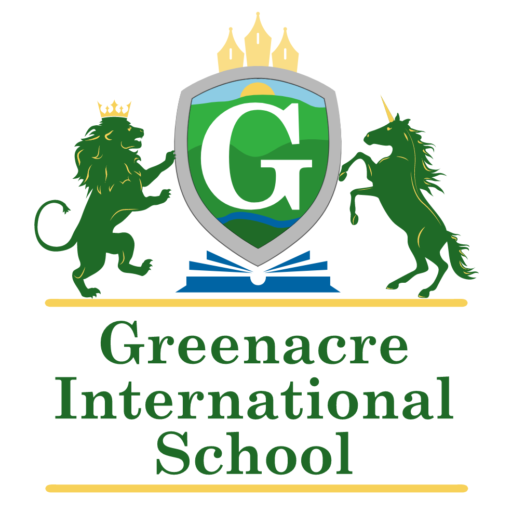EARLY YEARS FOUNDATION STAGE

Early years foundation stage
At Greenacre we follow the Early Years Foundation Stage (EYFS).
We recognise that each child is a unique learner and develops quickly in the early years. We aim to give our youngest students the best possible start on their academic learning journey. We provide a happy, secure, creative learning environment both indoors and outdoors.
We believe that learning through play is key to a child’s development and therefore place emphasis on teaching through investigating and learning through doing. All teachers in Early Years and Foundation Stage are native English speakers and each class has a Teaching Assistant.
Under the United Nations Convention on the Rights of the Child, children have the right to provision which enables them to develop their personalities, talents and abilities irrespective of ethnicity, culture or religion, home language, family background, learning difficulties, disabilities or gender.
At Greenacre we believe in offering our EYFS children an enabling environment that encourages development towards their potential.
The EYFS is divided into seven areas of learning Known as The early Learning Goals
- Communication and language
- Physical development
- Personal, social and emotional development
- Literacy
- Mathematics
- Understanding the world
- Expressive arts and design.
These areas of learning are used to plan your child’s learning which has been designed to suit your child’s individual and unique needs.

Early Learning Goals in more detail
Communication and Language
ELG 01 – Listening and Attention
Children listen attentively in a range of situations. They listen to stories, accurately anticipating key events, and respond to what they hear with relevant comments, questions or actions. They give their attention to what others say and respond appropriately, while engaged in another activity.
ELG 02 – Understanding
Children follow instructions involving several ideas or actions. They answer ‘how’ and ‘why’ questions about their experiences and in response to stories or events.
ELG 03 – Speaking
Children express themselves effectively, showing awareness of listeners’ needs. They use past, present and future forms accurately when talking about events that have happened or are to happen in the future. They develop their own narratives and explanations by connecting ideas or events.
Physical Development
ELG 04 – Moving and Handling
Children show good control and coordination in large and small movements. They move confidently in a range of ways, safely negotiating space. They handle equipment and tools effectively, including pencils for writing.
ELG 05 – Health and Self-Care
Children know the importance for good health of physical exercise and a healthy diet, and talk about ways to keep healthy and safe. They manage their own basic hygiene and personal needs successfully, including dressing and going to the toilet independently.
Personal, Social and Emotional Development
ELG 06 – Self-Confidence and Self-Awareness
Children are confident to try new activities, and to say why they like some activities more than others. They are confident to speak in a familiar group, will talk about their ideas, and will choose the resources they need for their chosen activities. They say when they do or don’t need help.
ELG 07 – Managing Feelings and Behaviour
Children talk about how they and others show feelings, talk about their own and others’ behaviour, and its consequences, and know that some behaviour is unacceptable. They work as part of a group or class, and understand and follow rules. They adjust their behaviour to different situations, and take changes of routine in their stride.
ELG 08 – Making Relationships
Children play cooperatively, taking turns with others. They take account of one another’s ideas about how to organise their activity. They show sensitivity to others’ needs and feelings, and form positive relationships with adults and other children.
Literacy
ELG 09 – Reading
Children read and understand simple sentences. They use phonic knowledge to decode regular words and read them aloud accurately. They also read some common irregular words. They demonstrate an understanding when talking with others about what they have read.
ELG 10 – Writing
Children use their phonic knowledge to write words in ways which match their spoken sounds. They also write some irregular common words. They write sentences which can be read by themselves and others. Some words are spelt correctly and others are phonetically plausible.
Mathematics
ELG 11 – Numbers
Children count reliably with numbers from one to 20, place them in order and say which number is one more or one less than a given number. Using quantities and objects, they add and subtract two single-digit numbers and count on or back to find the answer. They solve problems, including doubling, halving and sharing.
ELG 12 – Shape, Space and Measures
Children use everyday language to talk about size, weight, capacity, position, distance, time and money to compare quantities and objects and to solve problems. They recognise, create and describe patterns. They explore characteristics of everyday objects and shapes and use mathematical language to describe them.
Understanding of the World
ELG 13 – People and Communities
Children talk about past and present events in their own lives and in the lives of family members. They know that other children don’t
always enjoy the same things, and are sensitive to this. They know about similarities and differences between themselves and others, and among families, communities and traditions.
ELG 14 – The World
Children know about similarities and differences in relation to places, objects, materials and living things. They talk about the features of their own immediate environment and how environments might vary from one to another. They make observations of animals and plants and explain why some things occur, and talk about changes.
ELG 15 – Technology
Children recognise that a range of technology is used in places such as homes and schools. They select and use technology for particular purposes.
Expressive Arts and Design
ELG 16 – Exploring and Using Media and Materials
Children sing songs, make music and dance, and experiment with ways of changing them. They safely use and explore a variety of materials, tools and techniques, experimenting with colour, design, texture, form and function
ELG 17 – Being Imaginative
Children use what they have learnt about media and materials in original ways, thinking about uses and purposes. They represent their own ideas, thoughts and feelings through design and technology, art, music, dance, role play and stories.
